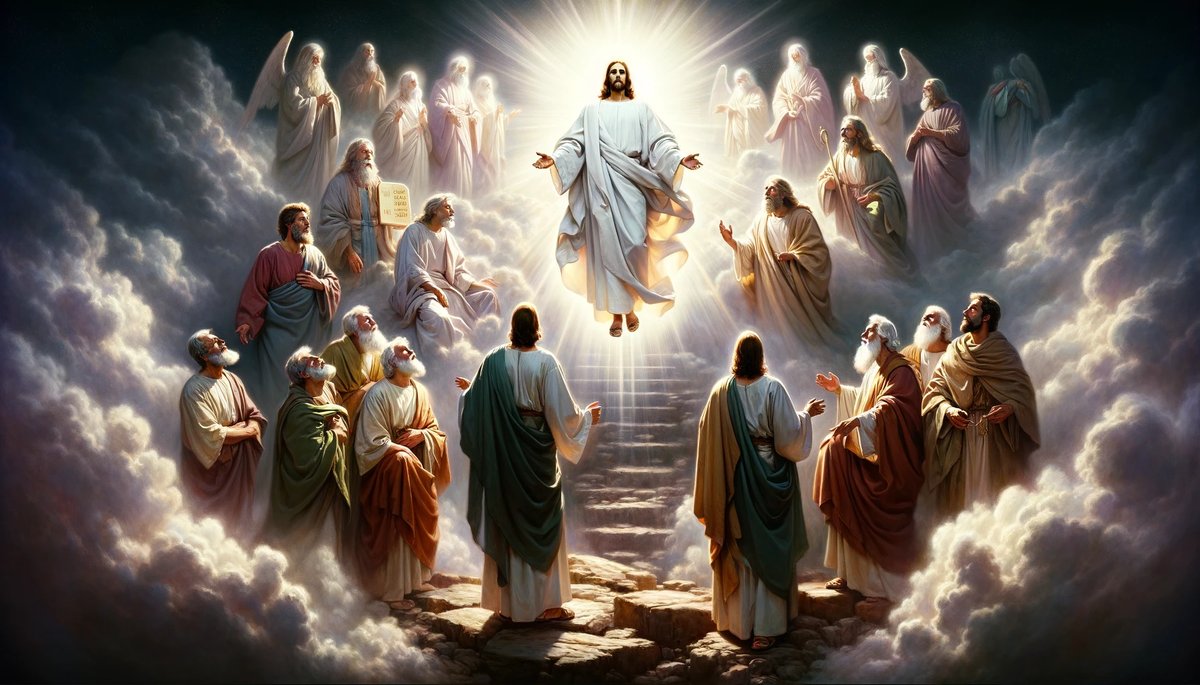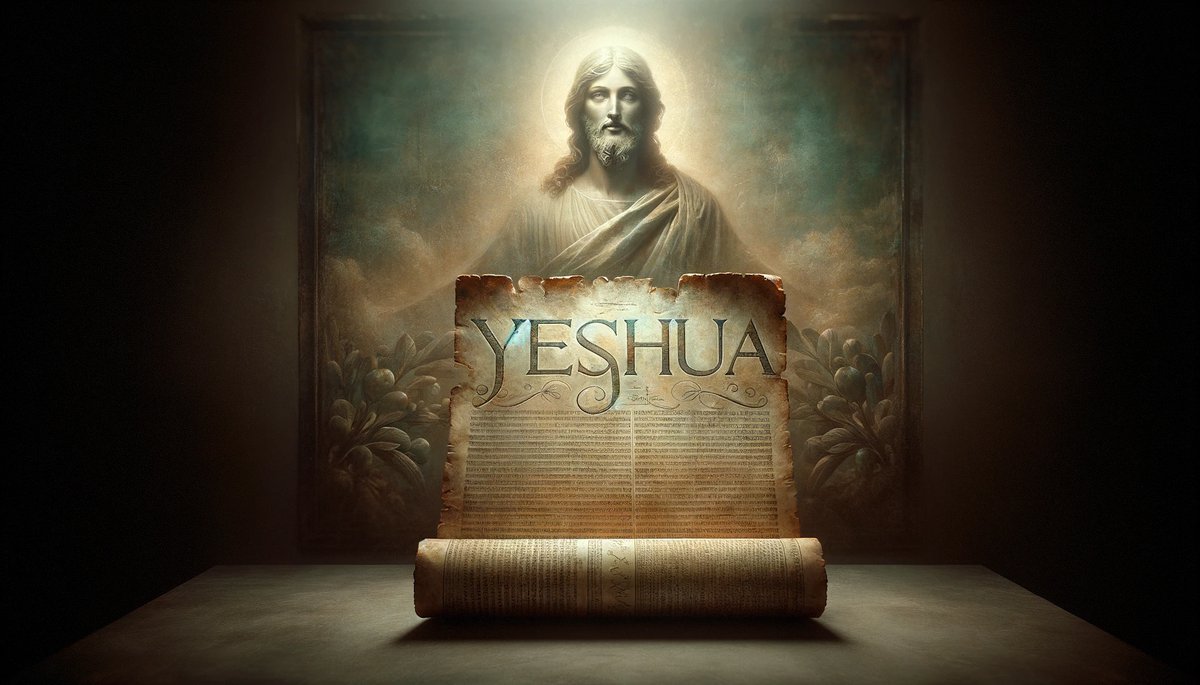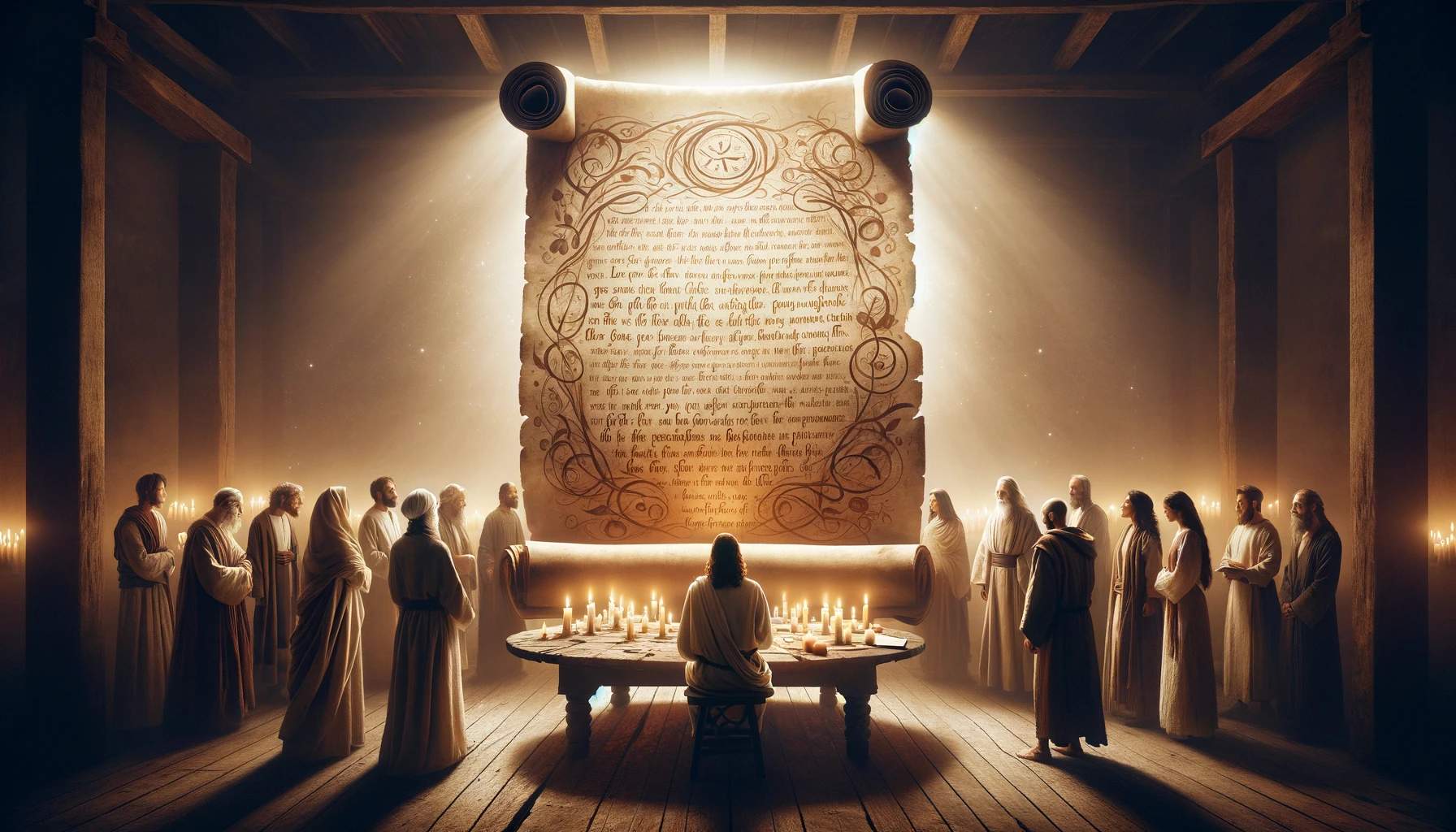Home>Christian Videos>Bible Stories>What Scripture Supports Giving Praise And Honor To Jesus Christ


Bible Stories
What Scripture Supports Giving Praise And Honor To Jesus Christ
Published: March 3, 2024
Ericka Andersen, an editor at Christian.net, expertly merges digital strategy with content creation, focusing on faith and societal issues. Her communication skills enhance the platform's engaging narratives, fostering meaningful dialogue on belief's impact on society.
Discover the biblical support for giving praise and honor to Jesus Christ through powerful and inspiring Bible stories. Explore the significance of honoring Jesus in the scriptures.
(Many of the links in this article redirect to a specific reviewed product. Your purchase of these products through affiliate links helps to generate commission for Christian.net, at no extra cost. Learn more)
Table of Contents
Introduction
Why is it important to give praise and honor to Jesus Christ? As an expert in religion, I can confidently say that the act of giving praise and honor to Jesus Christ is a fundamental aspect of Christian faith and practice. Throughout the New Testament, there are numerous scriptures that support the exaltation of Jesus Christ. These scriptures not only emphasize the authority of Jesus but also underscore the worship and reverence that is due to him. In this article, we will explore the scriptural basis for giving praise and honor to Jesus Christ, drawing from the Gospels, the Epistles, and the Book of Revelation. Let's delve into the rich tapestry of biblical passages that highlight the significance of honoring and exalting Jesus Christ in the Christian faith.
Read more: What Are Praise Hymns
The Authority of Jesus Christ in the New Testament
-
Matthew 28:18 – In this passage, Jesus declares, "All authority in heaven and on earth has been given to me." This statement unequivocally asserts the supreme authority of Jesus Christ over all creation.
-
John 5:27 – Jesus is described as being given authority by the Father to execute judgment. This verse underscores the divine authority vested in Jesus to judge the world, highlighting his role as the ultimate authority in matters of judgment and justice.
-
Ephesians 1:20-22 – The apostle Paul writes about the immeasurable greatness of God's power toward us who believe, "which he worked in Christ when he raised him from the dead and seated him at his right hand in the heavenly places, far above all rule and authority and power and dominion, and above every name that is named, not only in this age but also in the one to come. And he put all things under his feet and gave him as head over all things to the church." This passage emphasizes the exalted position of Jesus Christ, who is seated at the right hand of God, far above all other powers and authorities.
-
Philippians 2:9-11 – This passage speaks of God exalting Jesus and bestowing on him the name that is above every name, so that at the name of Jesus every knee should bow, in heaven and on earth and under the earth, and every tongue confess that Jesus Christ is Lord, to the glory of God the Father. Here, the authority of Jesus is affirmed, and his lordship is proclaimed as deserving of universal reverence and honor.
The New Testament resoundingly affirms the authority of Jesus Christ, depicting him as the supreme ruler and the one to whom all honor and obedience are due. These scriptures serve as a foundation for the worship and exaltation of Jesus Christ in Christian faith and practice.
The Worship of Jesus Christ in the Gospels
-
Matthew 2:11 – The visit of the Magi to the young Jesus is a significant event that highlights the worship of Jesus. The Magi, upon finding the child with his mother Mary, "fell down and worshiped him." This act of worship signifies the recognition of Jesus as a figure deserving of reverence and adoration, even from those outside the Jewish faith.
-
Matthew 14:33 – After Jesus calmed the storm and walked on water, the disciples in the boat worshiped him, declaring, "Truly you are the Son of God." This acknowledgment through worship demonstrates the disciples' realization of Jesus' divine identity and authority over the forces of nature.
-
Matthew 28:9 – Following Jesus' resurrection, the women who had gone to the tomb encountered Jesus and "took hold of his feet and worshiped him." This act of worship by the women underscores the profound impact of encountering the risen Christ and the natural response of reverence and adoration that it evokes.
-
Mark 5:6 – In the account of the healing of the demon-possessed man in the region of the Gerasenes, the man fell at Jesus' feet and worshiped him. This demonstration of worship by the man signifies the acknowledgment of Jesus' authority and power to bring about deliverance and transformation.
-
Luke 24:52 – As Jesus ascended to heaven, the disciples worshiped him and returned to Jerusalem with great joy. This act of worship at the culmination of Jesus' earthly ministry reflects the disciples' recognition of Jesus' exalted status and their response of adoration and praise.
The Gospels depict various instances of individuals and groups offering worship to Jesus, recognizing his divine nature, authority, and the profound impact of his ministry. These accounts serve to underscore the significance of worshiping Jesus Christ as an integral aspect of acknowledging his lordship and exalted position in the Christian faith.
The Exaltation of Jesus Christ in the Epistles
-
Colossians 1:15-20 – The apostle Paul, in his letter to the Colossians, presents a profound declaration of the exalted status of Jesus Christ. He describes Jesus as the image of the invisible God, the firstborn of all creation, and the one in whom all things hold together. Paul emphasizes that in Jesus, all the fullness of God was pleased to dwell, and through him, God reconciled all things to himself. This passage exalts Jesus as the preeminent and reconciling figure, highlighting his central role in the divine plan of redemption and restoration.
-
Philippians 2:5-11 – In this well-known passage, Paul articulates the exaltation of Jesus Christ, who, though existing in the form of God, emptied himself, taking the form of a servant, and being found in human likeness, humbled himself by becoming obedient to the point of death, even death on a cross. As a result of his obedience and self-emptying, God highly exalted him and bestowed on him the name that is above every name. Every knee should bow, and every tongue confess that Jesus Christ is Lord, to the glory of God the Father. This depiction of Jesus' exaltation underscores the profound significance of his sacrificial obedience and the universal acknowledgment of his lordship.
-
Hebrews 1:3 – The author of Hebrews portrays Jesus as the radiance of the glory of God and the exact imprint of his nature, upholding the universe by his word of power. This depiction emphasizes the exalted nature of Jesus as the divine and sustaining force behind the cosmos, highlighting his supreme authority and significance in the divine order.
-
1 Peter 3:22 – Peter speaks of Jesus, who has gone into heaven and is at the right hand of God, with angels, authorities, and powers having been subjected to him. This portrayal of Jesus' exaltation underscores his triumph over all spiritual forces and his enthronement at the right hand of God, signifying his supreme authority and dominion.
The Epistles provide rich theological insights into the exalted status of Jesus Christ, emphasizing his preeminence, sacrificial obedience, divine nature, and universal lordship. These passages serve to underscore the significance of honoring and exalting Jesus Christ in the Christian faith, recognizing him as the central figure in God's redemptive plan and the object of worship and adoration.
The Revelation of Jesus Christ in the Book of Revelation
-
Revelation 1:17-18 – In the opening chapter of the Book of Revelation, the apostle John encounters a vision of the exalted Jesus Christ. When John sees him, he falls at his feet as though dead. However, Jesus reassures him, saying, "Fear not, I am the first and the last, and the living one. I died, and behold I am alive forevermore, and I have the keys of Death and Hades." This powerful revelation of Jesus Christ emphasizes his eternal nature, victorious resurrection, and authority over death and the realm of the departed.
-
Revelation 5:12-13 – The heavenly scene in Revelation 5 portrays a profound moment of worship and exaltation directed toward Jesus Christ. The hosts of heaven, including myriads of angels, living creatures, and elders, ascribe praise to the Lamb who was slain, declaring, "Worthy is the Lamb who was slain, to receive power and wealth and wisdom and might and honor and glory and blessing!" This resounding chorus of adoration highlights the central role of Jesus Christ in the divine plan of redemption and the deserving nature of his exaltation.
-
Revelation 19:16 – As the climactic visions unfold in the Book of Revelation, Jesus is depicted as the conquering King, clothed in a robe dipped in blood, and identified as "King of kings and Lord of lords." This portrayal emphasizes the triumphant and exalted status of Jesus Christ as the ultimate sovereign, whose authority surpasses all earthly and spiritual powers.
-
Revelation 22:12-13 – In the closing chapter of Revelation, Jesus declares, "Behold, I am coming soon, bringing my recompense with me, to repay each one for what he has done. I am the Alpha and the Omega, the first and the last, the beginning and the end." This revelation of Jesus Christ as the Alpha and the Omega, the beginning and the end, underscores his eternal nature and his role as the culmination and fulfillment of all things.
The Book of Revelation provides vivid and awe-inspiring revelations of Jesus Christ, portraying him as the victorious and exalted figure worthy of worship, adoration, and ultimate allegiance. These visions serve to underscore the significance of honoring and exalting Jesus Christ in the Christian faith, recognizing him as the central and preeminent figure in the divine plan of redemption and the consummation of all things.
Conclusion
In conclusion, the scriptures in the New Testament provide a robust foundation for giving praise and honor to Jesus Christ. From the Gospels to the Epistles and the Book of Revelation, the biblical passages resoundingly affirm the authority, worship, exaltation, and revelation of Jesus Christ. These scriptures emphasize his supreme authority over all creation, the worship offered to him by various individuals and groups, the theological exaltation presented in the Epistles, and the awe-inspiring revelations of his divine nature and victorious sovereignty in the Book of Revelation. As an expert in religion, it is evident that the act of giving praise and honor to Jesus Christ is not only a theological imperative but also a deeply meaningful expression of faith and devotion for Christians. The scriptures compellingly portray Jesus as the central and preeminent figure in the Christian faith, deserving of reverence, adoration, and ultimate allegiance. Therefore, the scriptural support for giving praise and honor to Jesus Christ serves as a cornerstone of Christian belief and practice, underscoring his unparalleled significance in the divine plan of redemption and the worship of believers throughout the ages.














